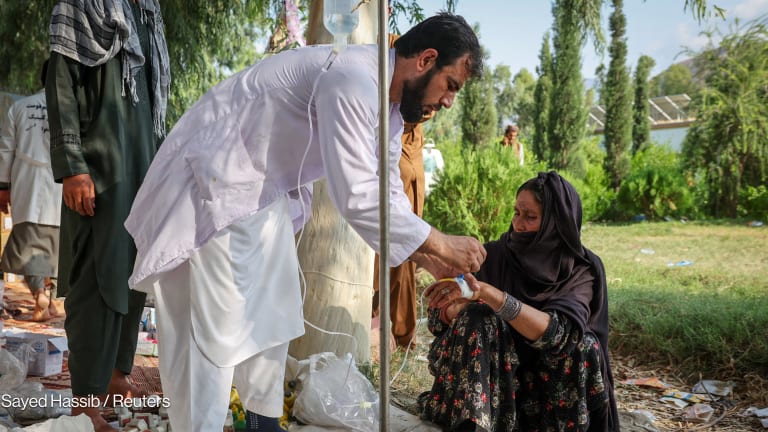Turkey and Syria are still reeling from the Feb. 6 earthquake that left more than 41,000 people dead, with casualties expected to continue rising. While the relief effort in Turkey has stretched the government, the fragile political situation in Syria has reportedly seen very little aid enter the northwestern region of the country, particularly to areas opposed to the regime of Syrian ruler Bashar al-Assad.
The United Nations has now announced the opening of two new border crossings into northern Syria, but it comes as the immediate rescue efforts are “coming to a close,” according to Martin Griffiths, the U.N.’s emergency relief coordinator.
As aid agencies start to look to long-term outlook and international interest is in danger of fading, funding remains a major concern. Action for Humanity is one NGO that has been providing aid in Idlib and northern Aleppo. Devex spoke with Hani Habbal, the organization’s Turkey-based head of programs for northern Syria and northwest Syria, for his view of the situation.








